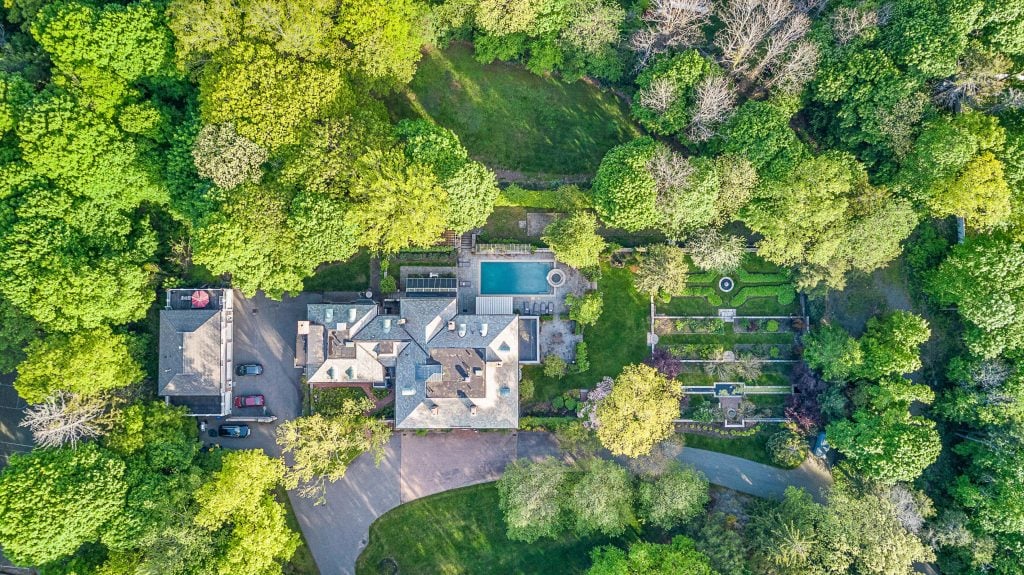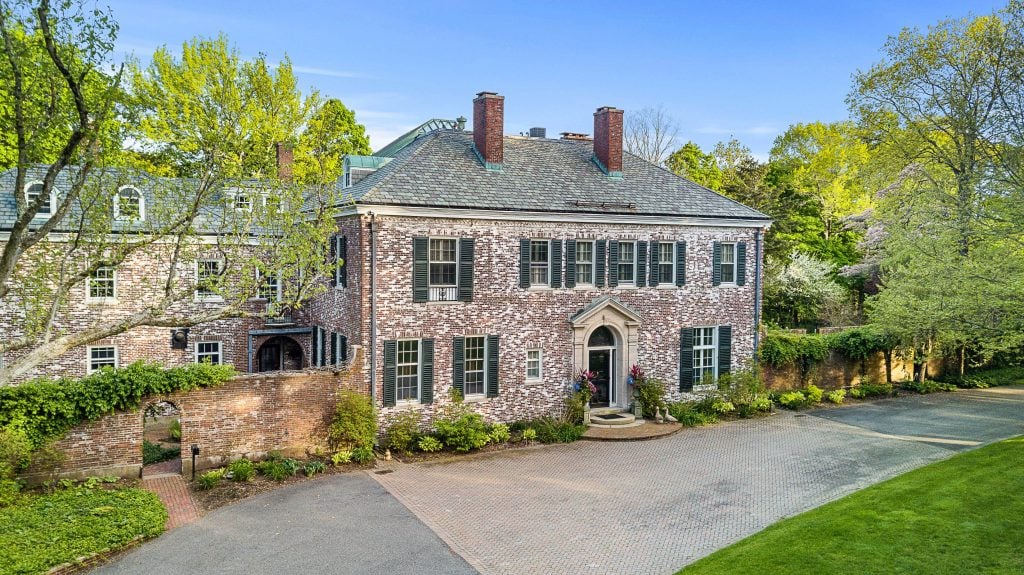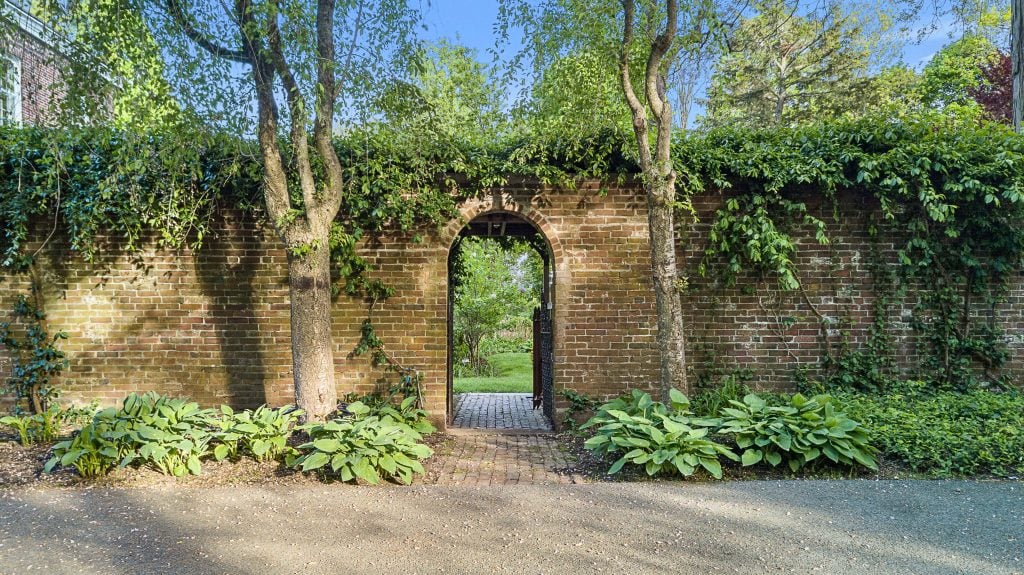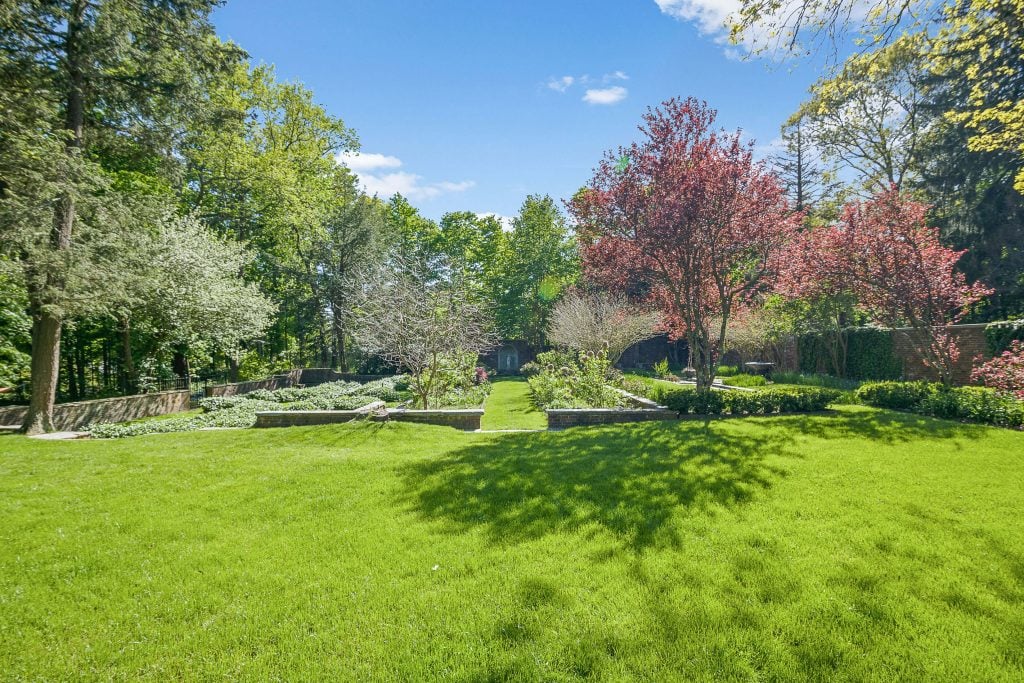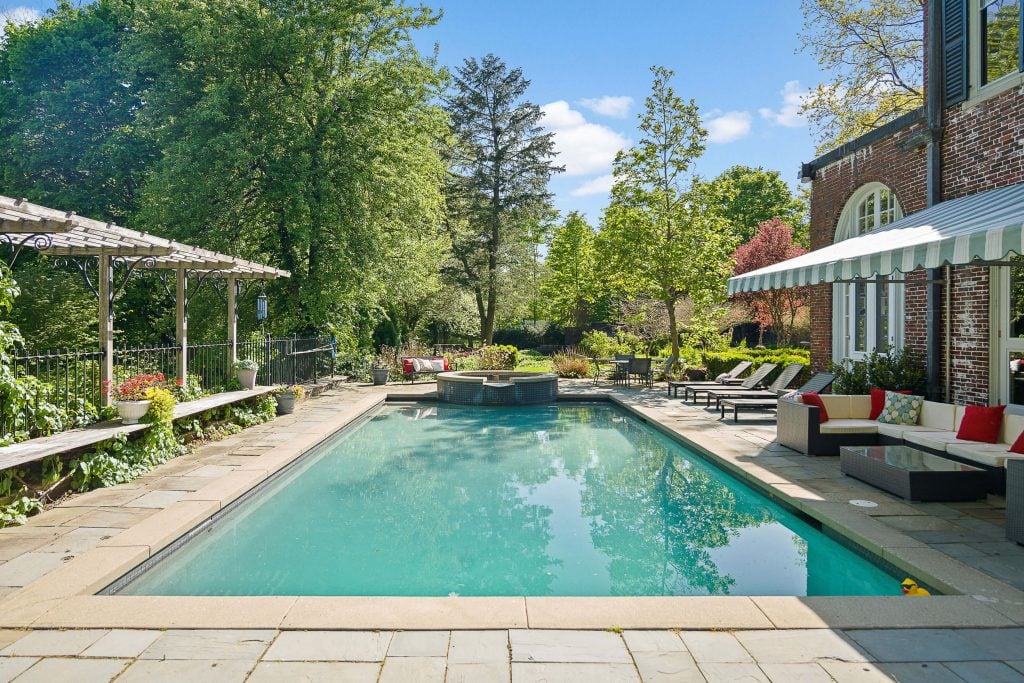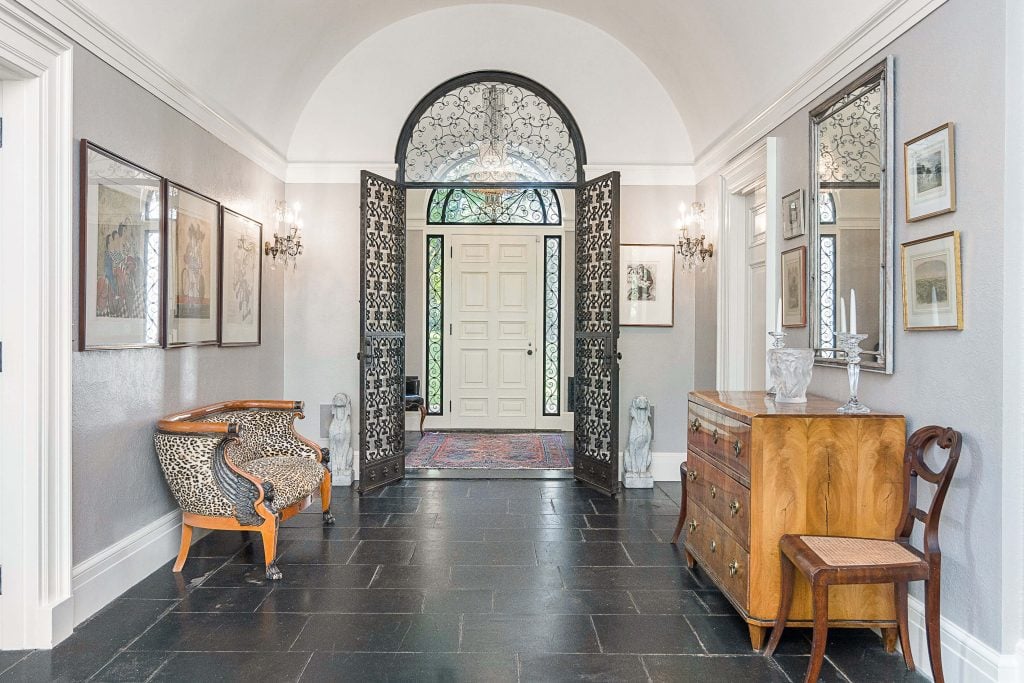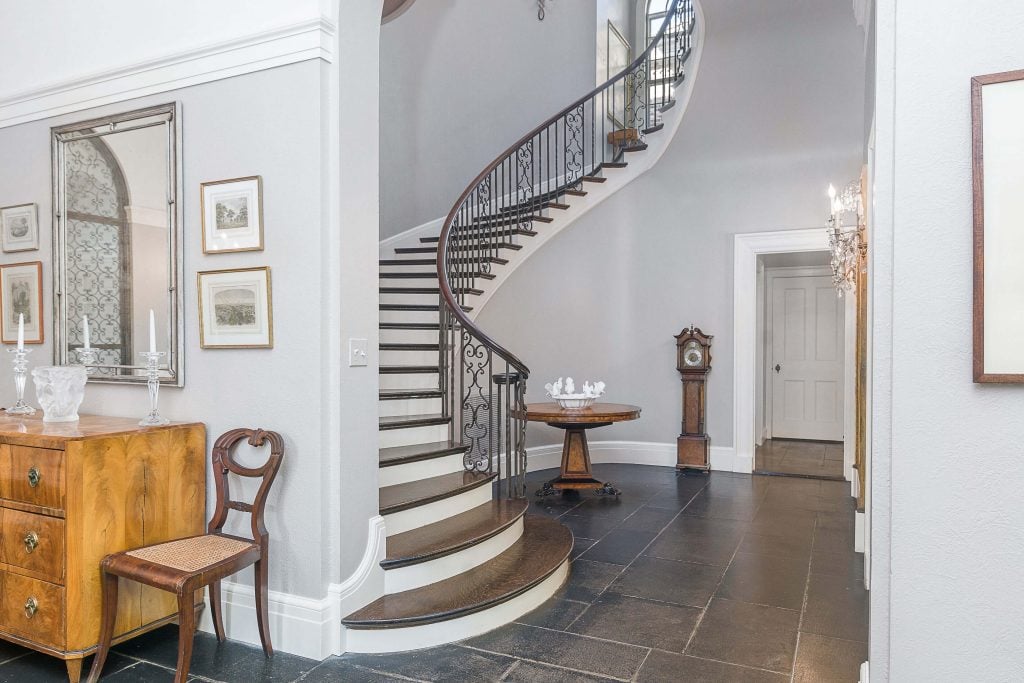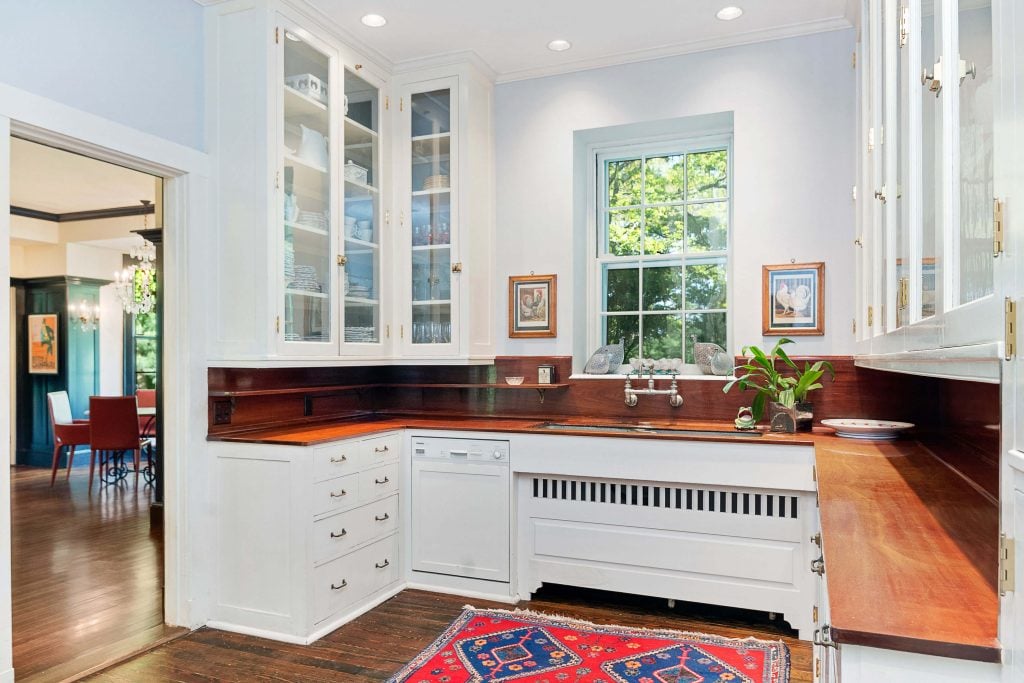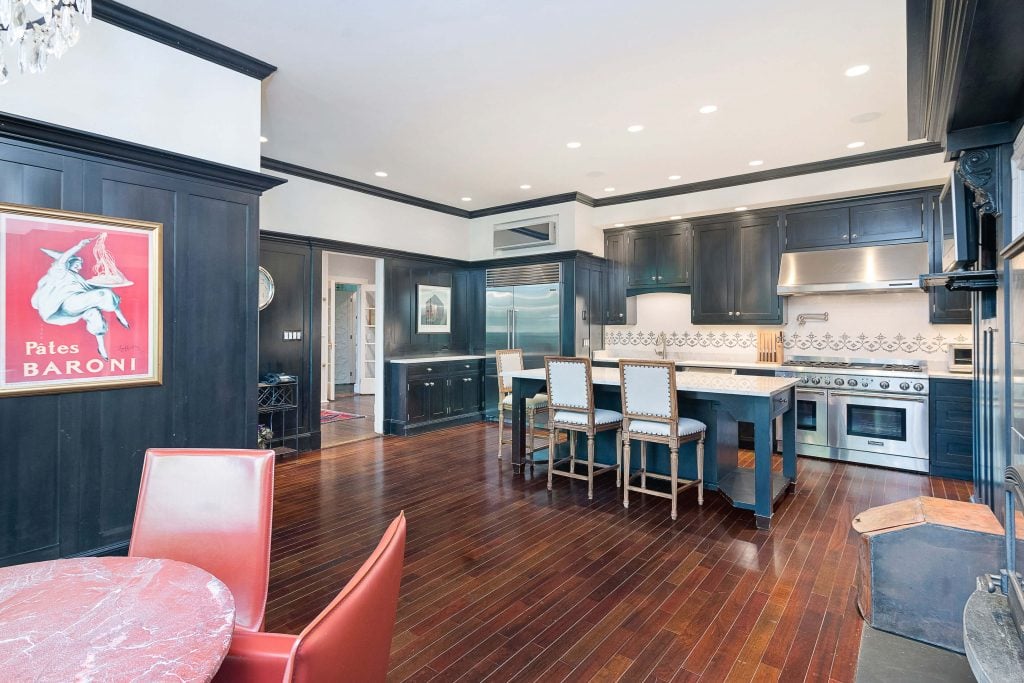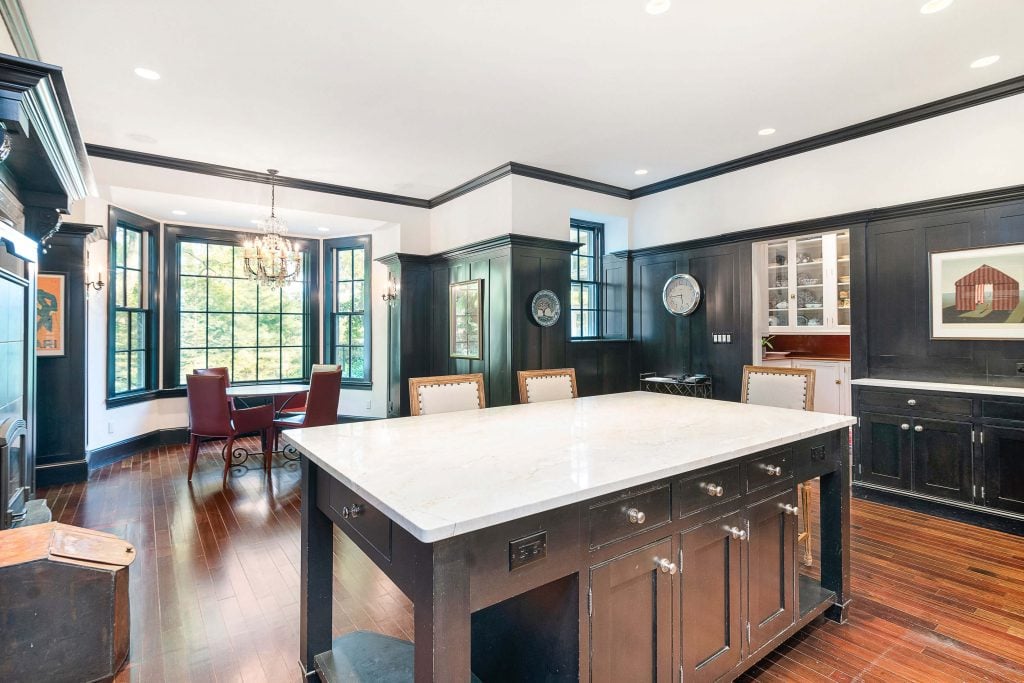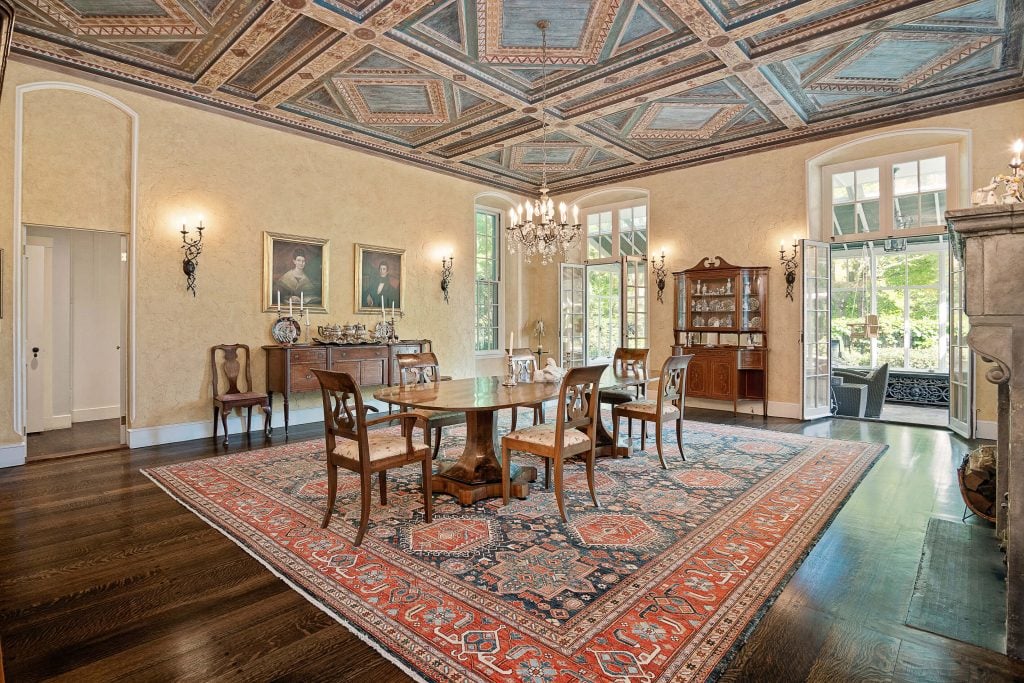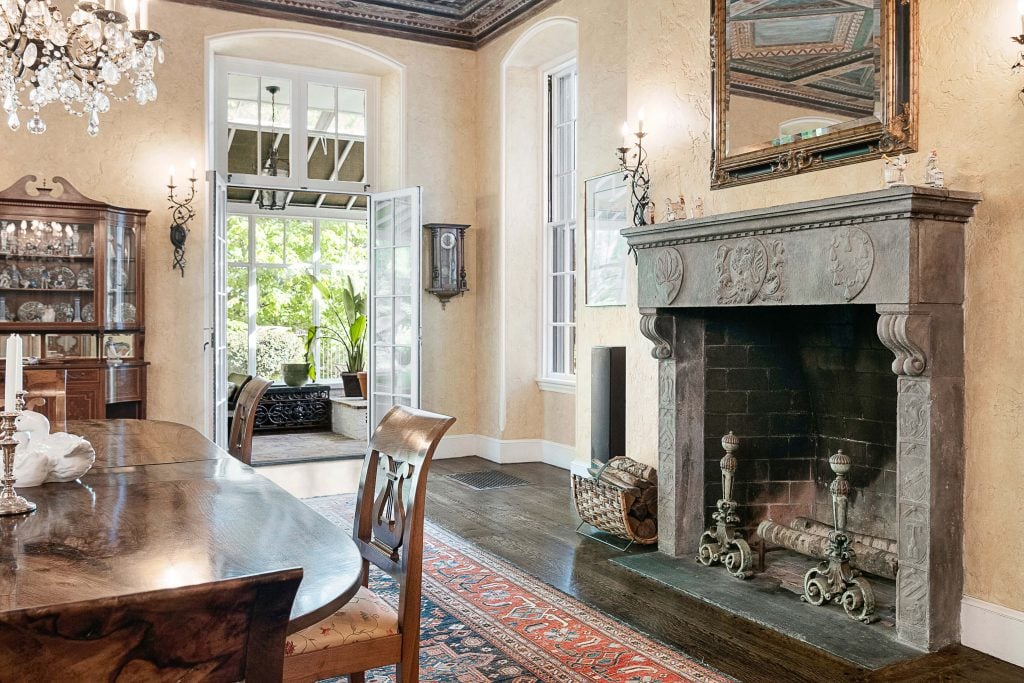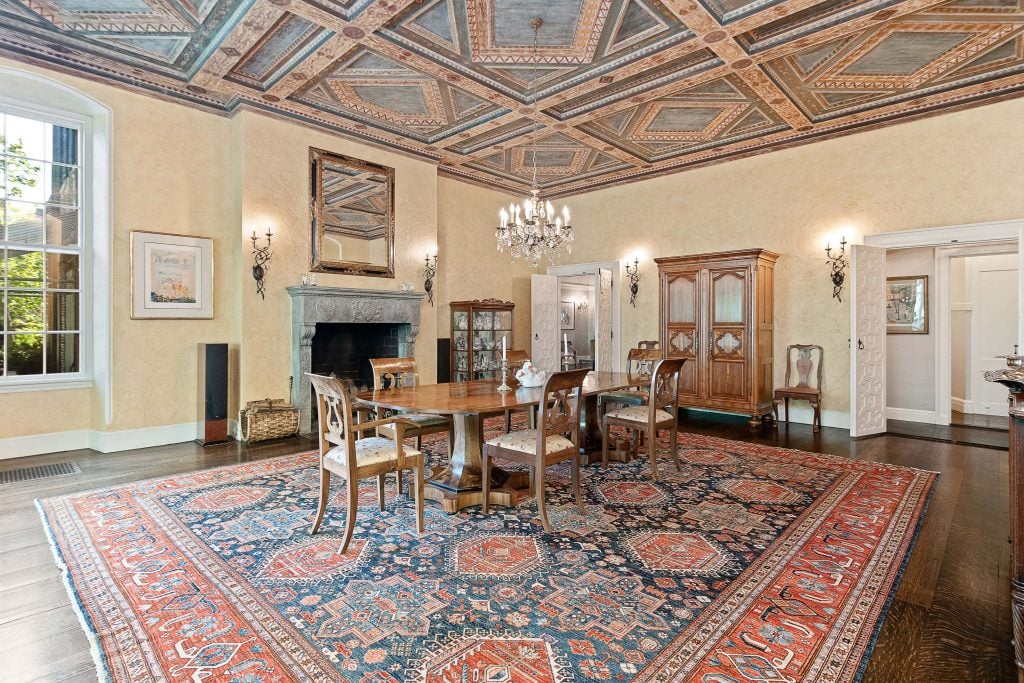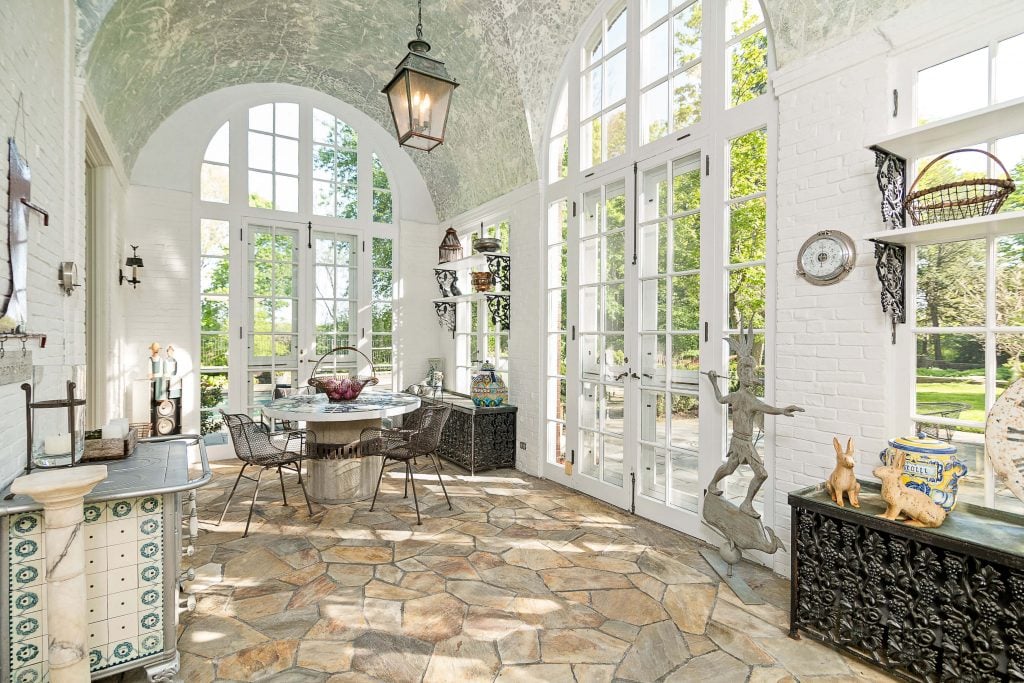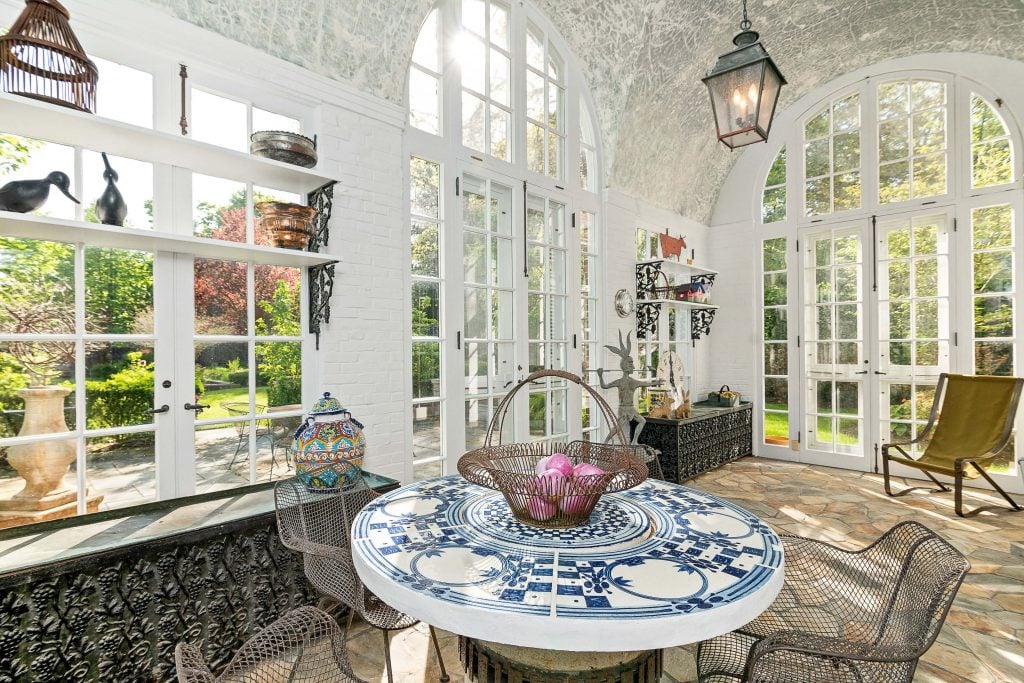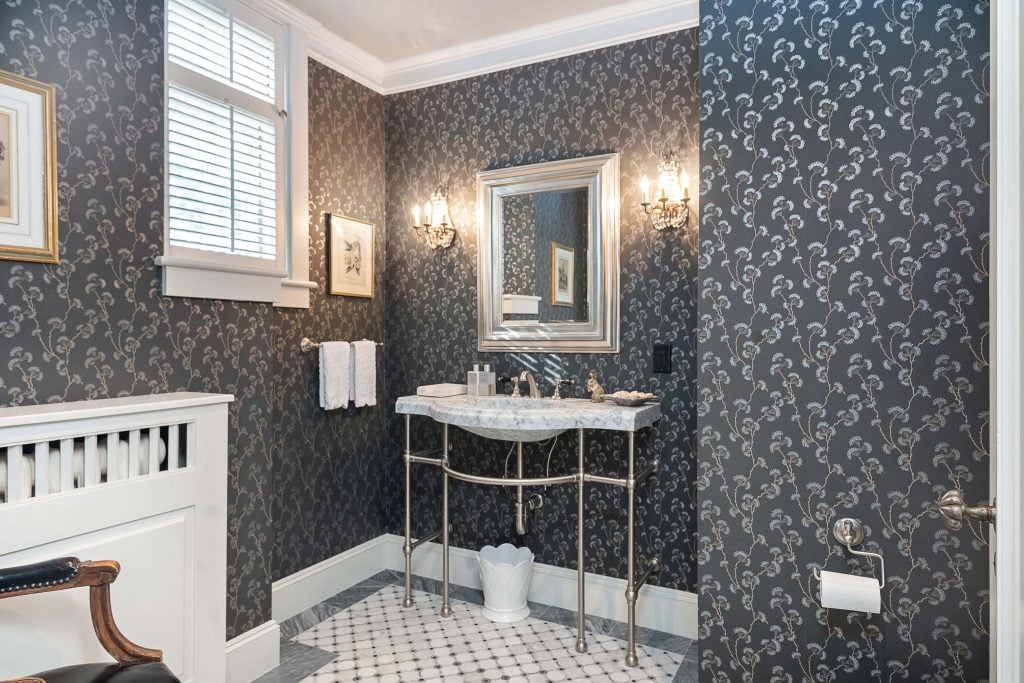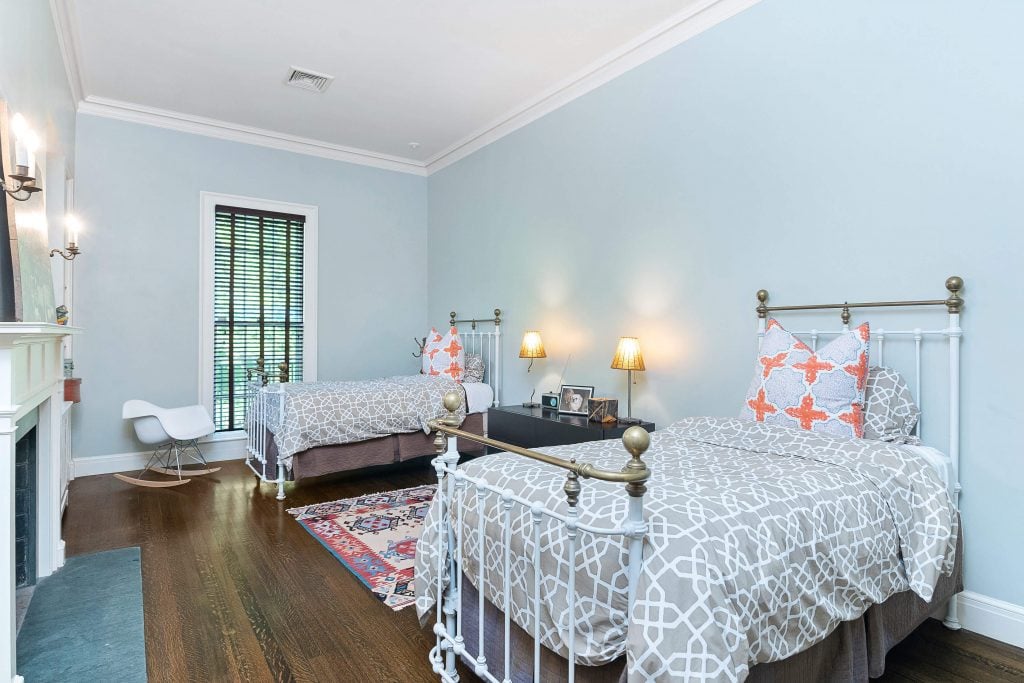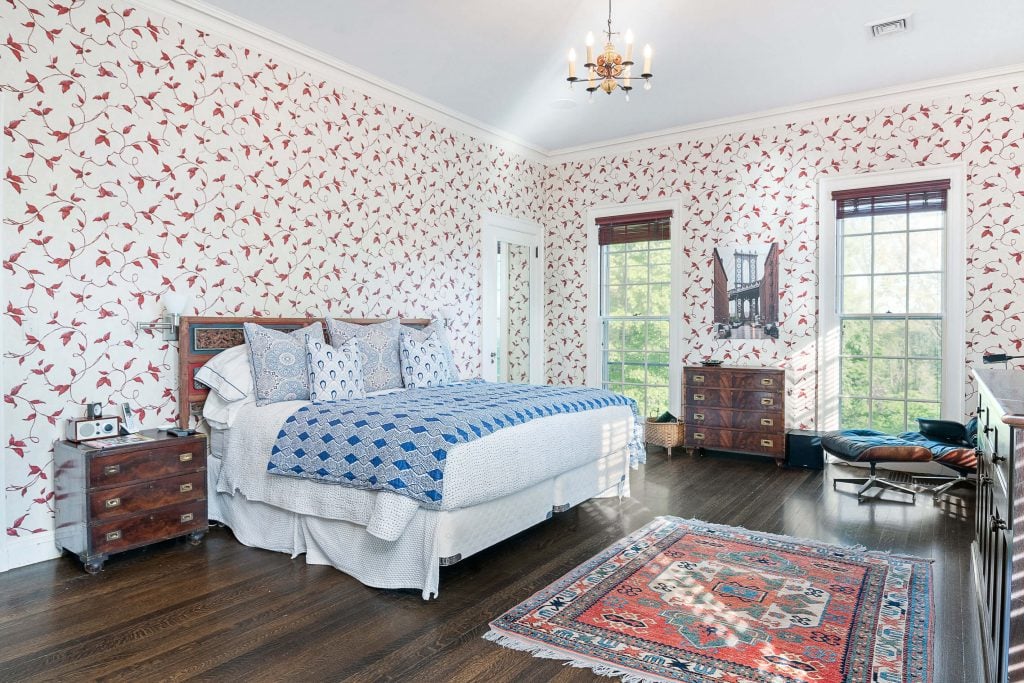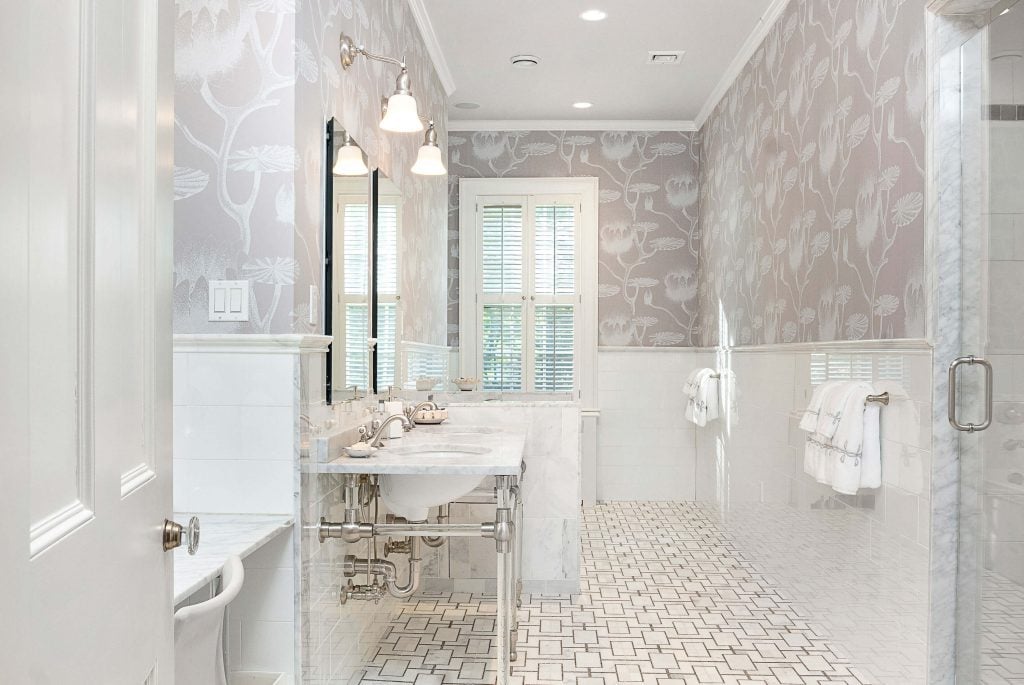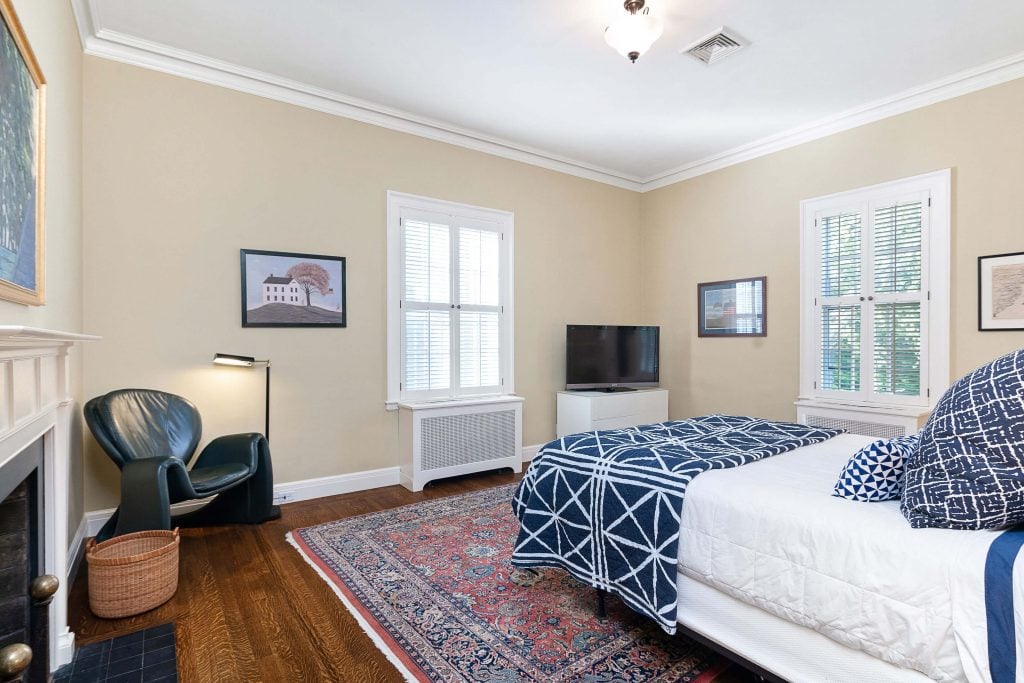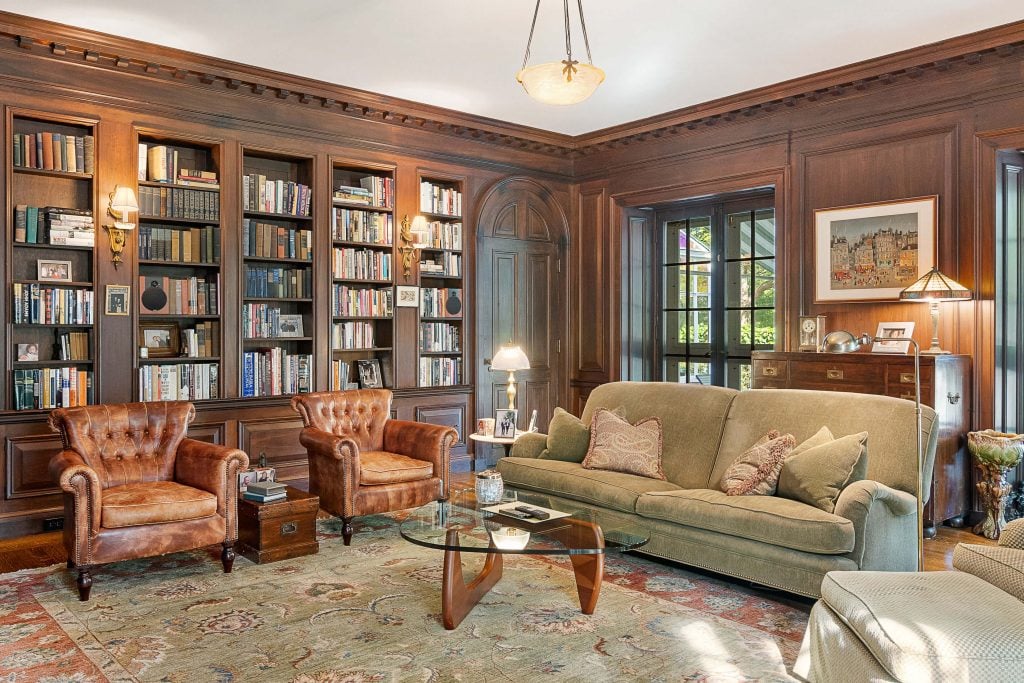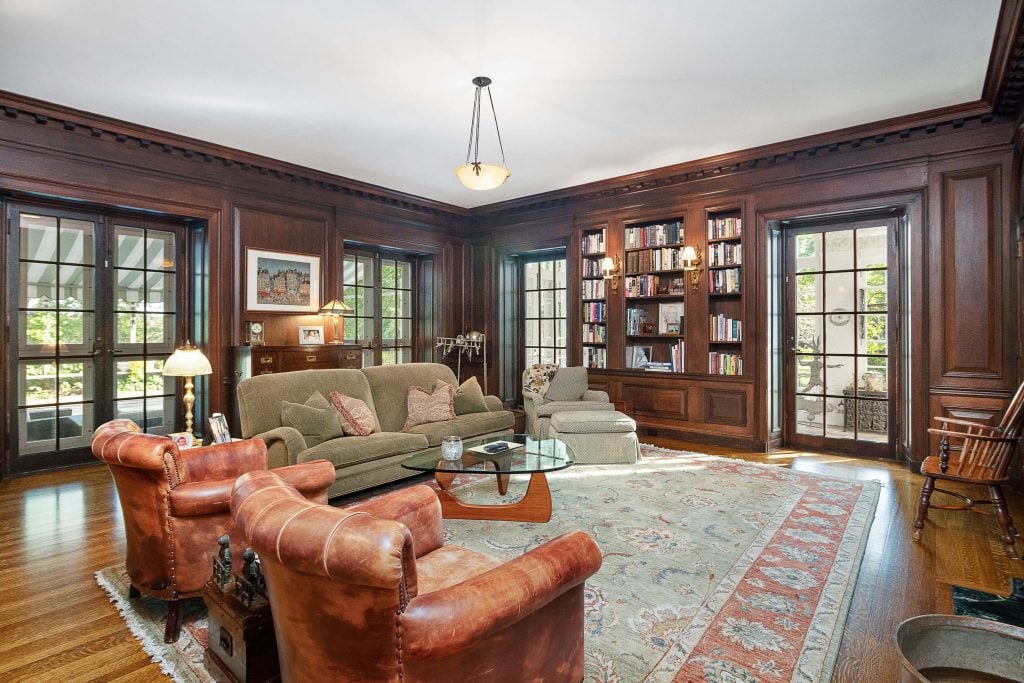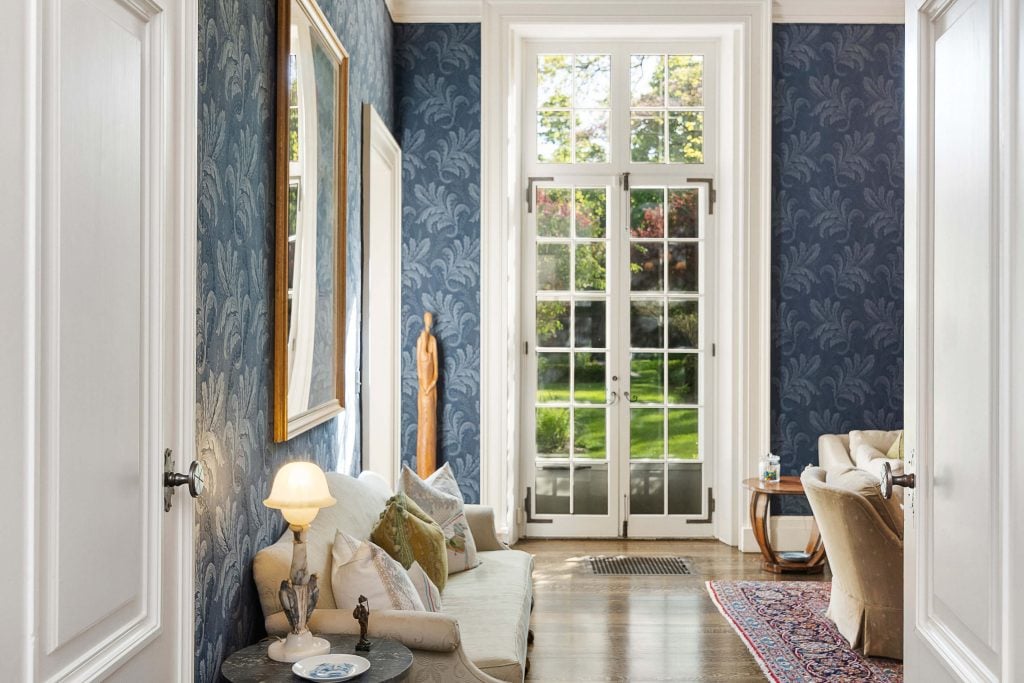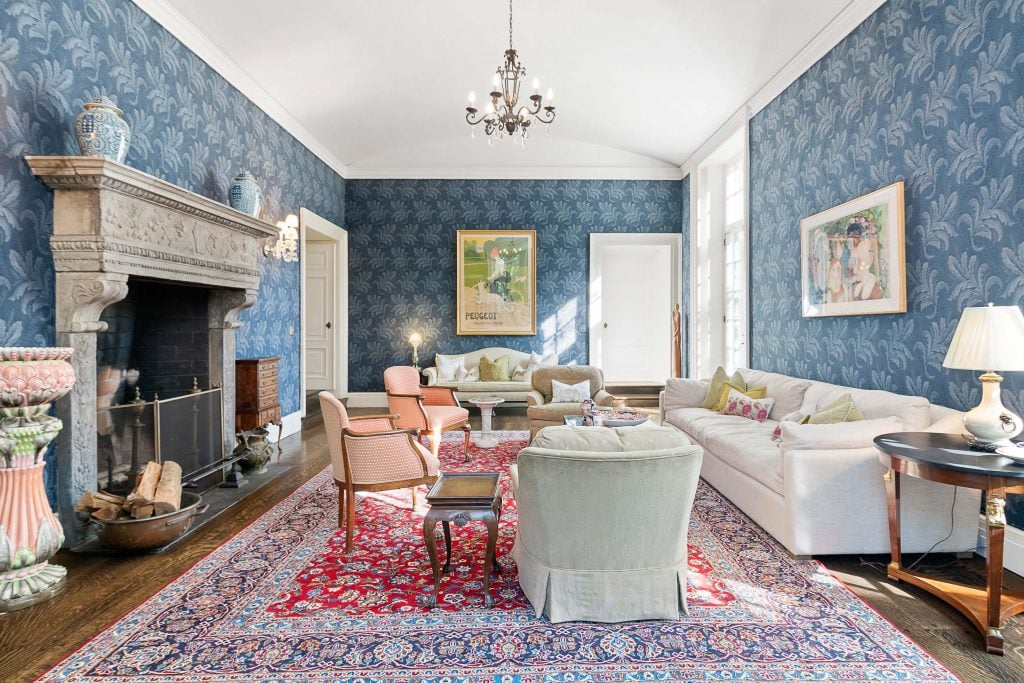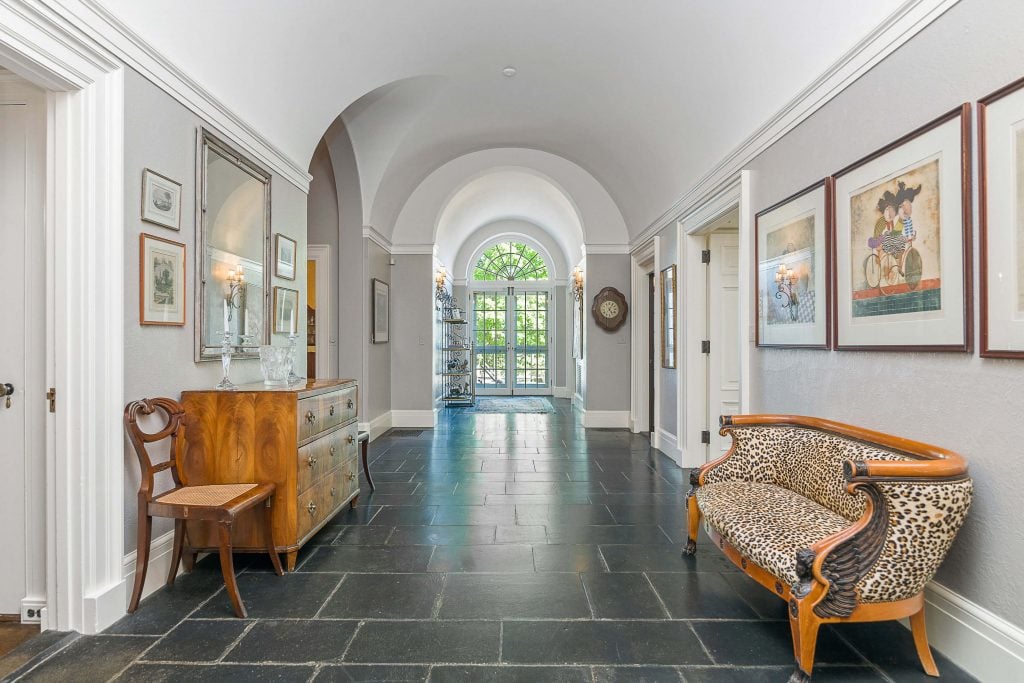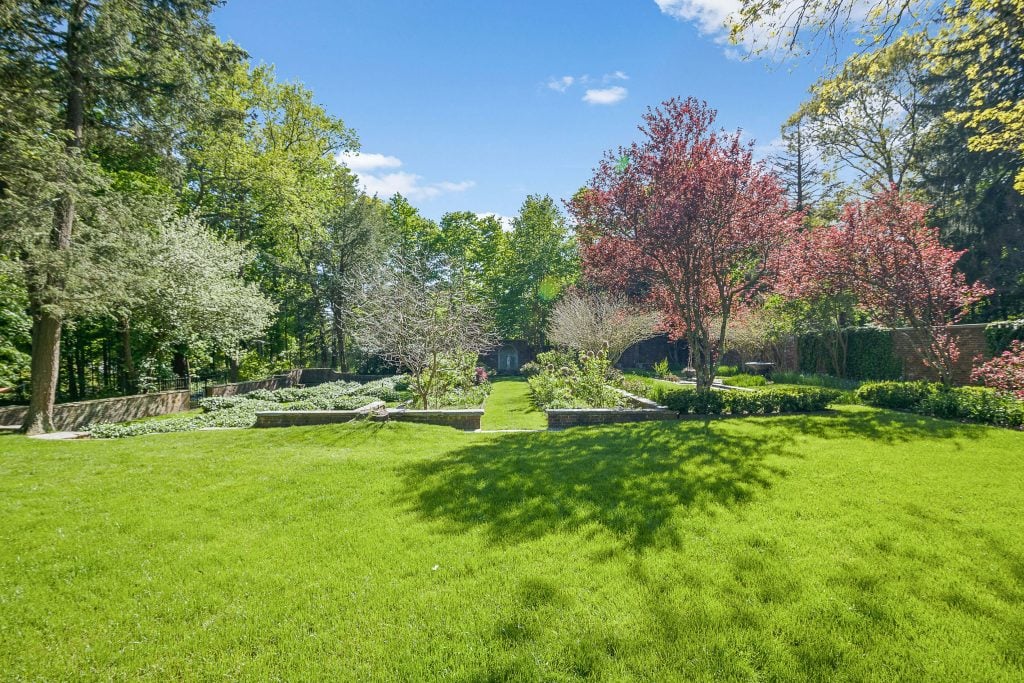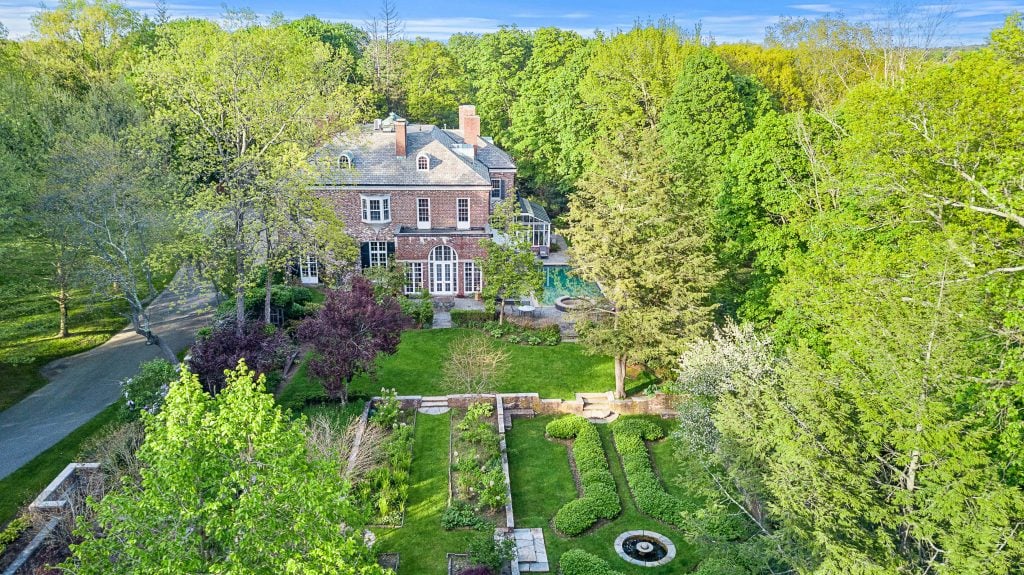The McGinley House: Impeccable Craft. Endless Possibility.
https://www.youtube.com/watch?v=lH6KWjzQKB0&feature=youtu.be
When it comes to the McGinley House, a comprehensive list of its features—the acreage and square footage; the in-ground pool and Jacuzzi; the tiered yards and gardens; the number of bedrooms and fireplaces; the massive guest house etc.—is more than sufficient to inspire a lengthy queue of buyers; however, compiling a portfolio of the specs almost misses the point entirely and overlooks exactly what makes the property so exceptional.
Succinctly put, the McGinley House is everything our current era is not: balanced, tranquil, thoughtfully crafted, and enduring. From its celebrated classical gardens to the modern touches exquisitely blended throughout the traditional Georgian mansion, the grounds and structures are a cohesive testament to American history, art, industriousness, and family, and will serve as an exceedingly apt oasis for any who share similar devotions.
Designed and built by Henry Forbes Bigelow and Philip Wadsworth, the premier architects of the early twentieth century whose resume of masterpieces include the Boston Athenaeum and George R. White’s illustrious Lilliothea in Manchester-By-The-Sea, the McGinley House immediately strikes you with its intelligence, both in its general design and in the way it educates and captivates its guests and dwellers.
Standing in the driveway, revering the grandiose nature of the impressive structure before you, you may notice the windows. Unlike the tyrannical symmetry of typical Georgian construction, the fenestration is deliberately asymmetrical, serving as a sort of artistic wink from the graves of Bigelow and Wadsworth. It is a unique element that not only sets the mansion apart and gives it an individual, almost sentient, character but tangibly induces the sense of nuance and liveliness present throughout the interior.
Another historical personage the house is quick to acquaint you with is Samuel Yellin, considered by many to be the most talented blacksmith and iron worker of the modern era. Entering the front door, standing awash in a silo of light from the crystalline chandelier hanging from the cathedral ceilings, you come immediately to a cast iron, floor-to-ceiling, security gate fashioned with curling tendrils between upright bars. Yellin’s design, highlighting the interplay between the curvature and the geometrical rigidity of its frame, is yet another artistic rendition of the façade’s intentional irregularity, a motif present at every turn from here on in, as is made no more apparent than by the sumptuous staircase winding upward in the daylight pouring down through the masterful elliptic cupola four stories above.
The staircase with its sharp contrast of dark wood and ivory white, its wide berth, and elegantly sloped railing, is the throbbing heart of the house. It is as if it is spiraling slowly upward into the luminosity nested among the hand cut apertures of the cupola’s walls. The railing, like the tendrils of Yellin’s gate, suggest both mastery in the exactitude of its craftsmanship and something very much alive, vegetal, elastic, almost a vine.
From the foot of the primary artery of the McGinley House, either direction you turn will take you into a facet of the past. To your left, the parceled realm of industry (updated, of course): several long, narrow pantries, the kitchen, discrete staircases and bathrooms (formerly the domains of servants), and what now serves as an office.
Straight ahead and to your right: a capacious formal dining room, its ceiling a quilt of Moroccan tiles, a dark wood library across the hallway, and adjacent to that the “Blue Room,” a vast entertaining area pristinely furnished, the walls blue silk. It is from these rooms that your most coveted tutelage will commence, for out the towering windows lie not only the Blue Hills but the thriving gardens from which you look out upon them.
Ellen Biddle Shipman was one of the most important landscape architects during the 1910s and 20s, when many of the most notable and ostentatious estates were being built across the country. Her landscaping philosophy, in harmony with the aesthetics of the other major players responsible for the master work of the mansion, revolved around a preternatural expertise in the area of plant species and softening the restrictions of a garden’s walls by incorporating them into the garden itself, hence the budding cherry trees bustling over the brick barrier as you coast along the driveway to the front door.
Exiting the reading room, you enter a white brick three seasons room that smacks of southern California, capped with a cathedral ceiling of gray limestone run through with brilliant white veins, a refreshing touch that cleanses, clarifies, and readies you for a calming stroll along the shrubs and blossoms. One more vast glass door takes you to an expansive patio from which three lengthy, wide, tiered gardens stretch, each with a fountain and impeccably chosen sculpture as its crown. Following the central garden delivers you to the ledge around which the whole design revolves, wherefrom the Blue Hills roll in the distance while you gaze steeped in the waft of seasonal blooms.
At this juncture, you are free to turn and look back in wonder and dismiss the art and history the property is entrenched in and simply indulge in the endless, more common pleasures the McGinley Mansion brings to mind. You’re free to imagine your children, grandchildren, siblings, parents, cousins, friends around the pool, moseying to the sauna or Jacuzzi, mixing drinks at the outdoor bar, hashing out the stakes for the annual family bocce tournament about to kick off one tier down. You’re free to dwell on the foot traffic that has scurried through the house to the gargantuan cast iron coal stove still anchored in the basement; the quiet steps and thoughts of the generations of help that crept quietly off to bed up the out-of-the-way stair wells; the cavernous attic where craftsmen in ties brought their calloused hands to bear on the cupola; the elegant parties you will host for colleagues and in commemoration of your children’s milestones.
Simply put, the virtues of the McGinley Mansion are as multi-dimensional as they are subtle; it is the ideal sanctuary for a family who knows how to appreciate the finer things in life yet still dedicates itself to modesty and enjoys the heedless pleasure their loved ones find in what appears to be just an amazing mansion. Money can buy square footage, bedrooms, privacy; install fireplaces, maintain a pool, plant some trees and flowers, but what it cannot do is cultivate a life that lives up to the grand, fading notions at the heart of the McGinley Mansion—that’s on you.


